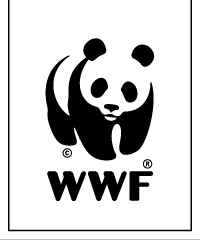The Greek sea is home to 447 of the 519 species that live exclusively in the Mediterranean, 9 resident marine mammals, undersea meadows of unique beauty and value, and us! In the 6,000 kilometers of coastline you will find 24,000 fishers, 16,000 fishing vessels and entire communities that live on the wealth that the sea so generously provides.
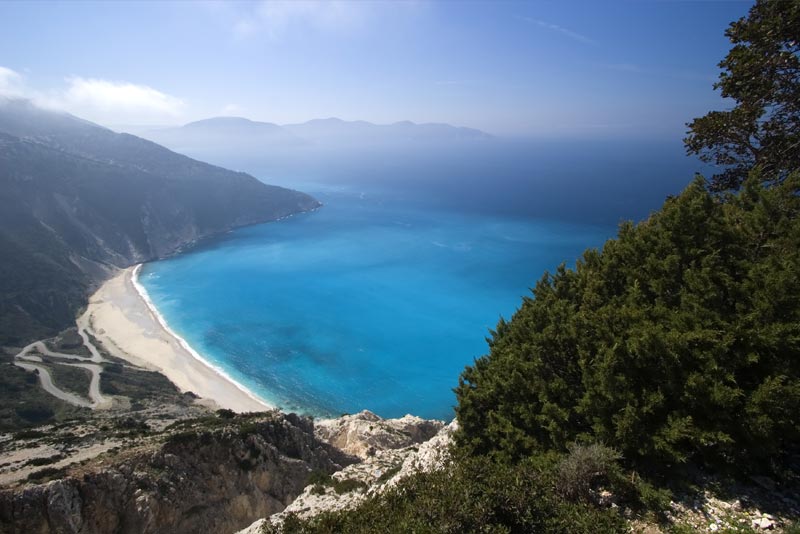
© A. Bonetti / WWF Greece
The marine environment is intertwined with the Greek lifestyle, journeys and summers, history, civilization and commerce. This blue natural wealth that embraces our country is, of course, one of our top priorities. The Mediterranean is, after all, one of the most important cradles of biodiversity on the planet, a fact that the WWF recognized internationally by including it in the 35 most important areas in the world. To us, however, it is more than that; it is our way of life!
And yet, it is under great threat, as 8% of Mediterranean species are at risk of extinction, while 82% of fish stocks have been overfished. When it comes to the sea, there is no time to waste, and so we put forward solutions and exert political pressure nationally as well as internationally. In cooperation with local communities, we develop exemplary models. We inform the public about the unknown wealth of the sea and cooperate with other NGOs, public and private institutions, fisheries and citizens to keep the blue alive with our focus always on the people.
CYCLADES LIFE
The program CYCLADES LIFE, “Integrated Monk seal conservation of Northern Cyclades” aims to establish for the first time in Greece, a new Marine Protected Area (MPA) around the Natura site of Gyaros (a deserted islet – former exile site), under a management plan that will be designed with a holistic and interdisciplinary approach and use a pioneering methodology that will promote sustainable development in local communities, support sustainable fisheries and protect biodiversity.
The scientific study, the conservation of the endangered Monk seal population in Gyaros, the documentation and mapping of the unique marine biodiversity of the broader area, such as Posidonia beds, the unique Coralligenous beds (maerl – tragana) and the submerged marine caves and finally the promotion of alternative actions, will play a vital role in the formulation of adequate protection measures, while in parallel it will contribute to sustainable development of the region as a whole.
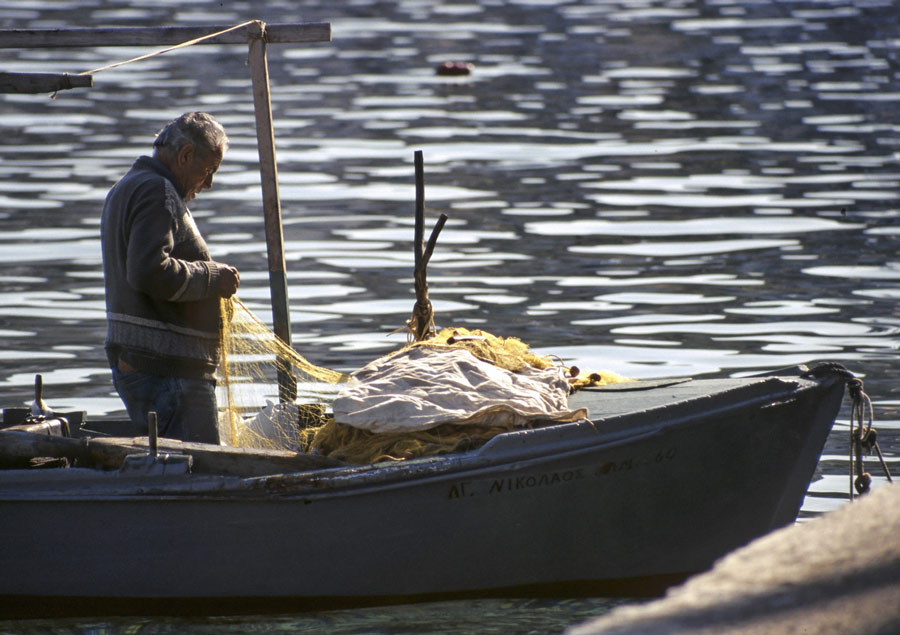
© Γ. Παξιμάδης / WWF Ελλάς
Principles such as Ecosystem Based Management and Marine Spatial Planning will be the foundation for the efficient design of the new marine protected area, which will be based on a participatory system with the active contribution and direct consultation by all the involved and interested stakeholders at local and central level, through the formulation and co-operation of a committee, which will promote and ensure direct involvement and participation in the co-management of the area.
Moreover, a wide range of actions will be implemented in order to maintain the MPA’s environmental structure, by supporting at the same time the traditional social and economic structures of Andros and Syros and promoting new alternative ones, activating all the relevant bodies from the fishing and tourism sector, as well as the local government.
The core idea of the “CYCLADES LIFE” project is the diffusion of the extensive knowledge that will be gained, as well as the dissemination of the results that will be achieved not only to the local and scientific communities but also to all the key authorities, through awareness raising and educational activities. Consequently, they will be mobilized to actively participate and act towards the protection of the new MPA, by supporting the CYCLADES team’s efforts regarding political pressure and intervention.
Accordingly, the fundamental goal is the institutional establishment and protection of the broader area, following the adoption and application of sufficient measures that will take into consideration the welfare of the unique marine environment, the biodiversity and the local community too.
Our 4 year journey begins! Follow us and learn about the reasons why we decided to start the particular project, observe the actions that will be executed from July 2013 to June 2017, stay tuned with the latest news from the field team and most importantly experience the Cyclades Islands as you have never experienced them before thanks to the remarkable and outstanding photographic and video footage that will be produced.
Thalassa: Learn, Act, Protect
Through our campaign Thalassa: Learn, Act, Protect, we inform the public of the 14 marine mammals, 9 resident and 5 occasional, that are found in the Greek sea, providing knowledge and showing ways to coexist with them in harmony.
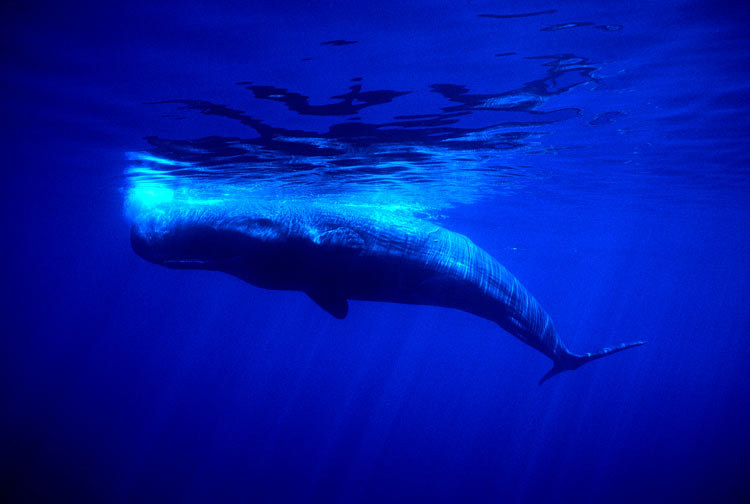
© Α. Frantzis / Pelagos Cetacean Research Institute
Their prosperity means a healthy marine environment and, thus, prosperity for us all. Since we share the same home, it’s time we learned to live together.
Discover the mammals of the Greek sea!
The European program Thalassa: Learn, Act, Protect/Awareness Campaign for Marine Mammals in Greece is carried out by MOm/The Hellenic Society for the Study and Protection of the Monk Seal and WWF Greece, along with the Pelagos Cetacean Research Institute and the Tethys Research Institute, with the support of the EU financial instrument LIFE, the Stavros Niarchos Foundation, the Green Fund and Blue Planet Shipping SA.
Fishing and the Mediterranean Monk Seal
The Mediterranean monk seal, Monachus monachus, is more than just another species of the marine environment; it is an integral part of the past, present and future of the Greek seas and the Mediterranean. In fact, roughly half of its global population—i.e., 250 to 300 individuals—lives and breeds in Greece.
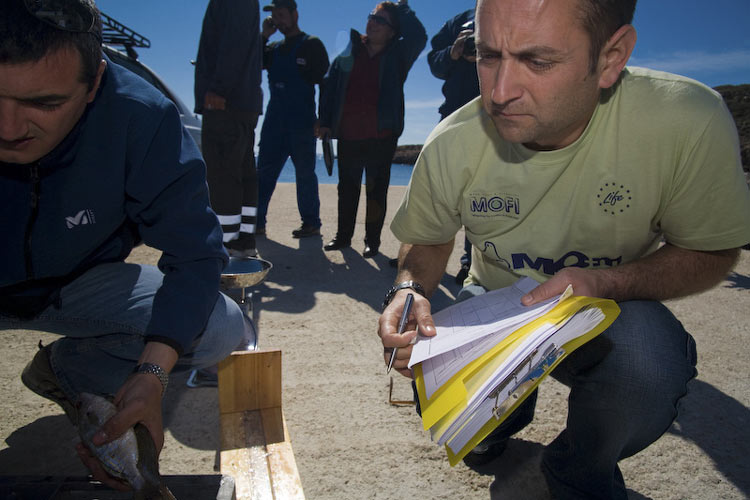
© V. Paravas / Mom
Between 2005 and 2009, WWF Greece and MOm carried out the European program MOFI: Monk Seal and Fisheries: Mitigating the Conflict in Greek Seas in cooperation with the Fisheries Research Institute of the National Agricultural Research Foundation, the Erasmus University of Rotterdam and the University of Aberdeen. The program’s objective was to improve conditions for the largest monk seal population in the world by reducing the negative effects of the interaction between monk seals and coastal fisheries on both parties. Proposals on reducing seal as well as bottlenose dolphin interaction with coastal fisheries were introduced to the proper authorities in a comprehensive plan of action in 2009. The state has yet to adopt the proposed plan, and so we continue to work and push for its implementation through continuous deliberation with the fisheries and proper authorities.
Discover the secrets of the Mediterranean monk seal!
Unique Species
Marine mammals are just one part of the amazing tapestry of marine life that embraces our country. In the more than 20 years of our presence in Greece, we have focused our efforts on other emblematic - and unfortunately threatened - species of our seas. Two of them are the loggerhead sea turtle and the bluefin tuna.
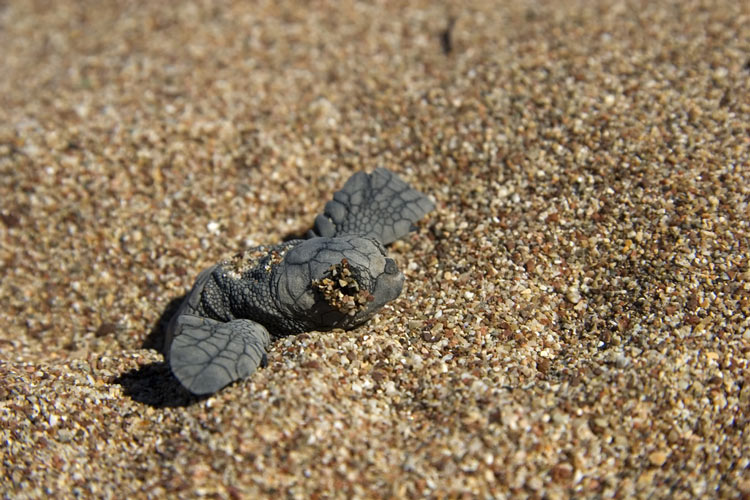
© A. Bonetti / WWF Greece
Protecting the loggerhead turtle, Caretta caretta, is one of WWF’s global priorities and a cause we have been fighting for unceasingly for more than 20 years. A significant milestone in our progress was the successful 1994 European campaign for the acquisition of the area surrounding Sekania beach in Zakynthos, the most important loggerhead nesting beach in the Mediterranean. Our efforts to save this unique species continue unabated.
Discover the unique loggerhead turtle and what we do to protect it!
Overfishing and the extensive illegal fishing of the Mediterranean bluefin tuna have brought it to the verge of extinction. WWF has been highly active regarding the protection of the bluefin tuna in the Mediterranean We have been researching and gathering data, as well as influencing policy in Europe and internationally. We call upon consumers and businesses to boycott the trade and consumption of bluefin tuna from the Mediterranean.
Protected Areas
Promoting marine protected areas is a steady and pivotal part of our work because they can provide refuge to marine life and are indispensable for the health of the catch and, thus, the prosperity of fishers across the sea.
Read more on our work for protected areas and on our vision of truly sustainable fishery.
Project leader: Giorgos Paximadis, This email address is being protected from spambots. You need JavaScript enabled to view it., 0030 210 3314893
Share this
